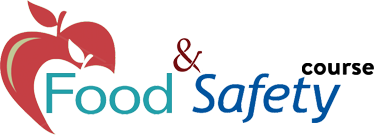You will find high quality training courses on food safety and sanitation at Red Deer First Aid. We take pride in keeping our training fees very affordable while maintaining the quality of our programs. Food Safety in Red Deer courses are some of the most popular course we offer to trainees. We hold them several times through the week, sometimes even more often when there are too many trainees to accommodate in the existing schedules.
Signing up is quite easy over on the Red Deer First Aid website. We have a form on the site that is available 24 hours out of the day. You can use that form to sign up for a class; we will process all requests during business hours. We also have other methods – e-mail, telephone call, and in-person enrollment, whatever works for you.
The Issue in Food Safety in Red Deer
Food safety is a big deal to the WHO (World Health Organization). Primarily because diarrheal diseases kill over 2 million annually. An official database regarding statistics about it is still in the works, because the factors that contribute to it are varied and numerous. Foodborne illness is not just one illness; it is used to describe diseases that are caused by ingestion of contaminated food products.
Food can become contaminated through improper handling, where microorganisms and substances can end up on food that is bought and consumed by customers. This is why the focus of food safety is the proper skills and knowledge used to prevent the contamination of food – thereby making food safe for public consumption. The skills you will learn in a food safety course with us cover everything from food preparation to service and storage.
The Alberta Food Regulation Public Health Act
Food safety training is not mandated for all food service workers. However, food establishments are required to have a number of employees trained in food safety. According to the act, one trained employee has to be present when there are five or less employees working during a shift. If there are six or more employees working, there has to be at least one supervisor trained in food safety present.
Not all food establishments are required to follow this act. The establishments that are not covered by the public health act are: B&Bs (bed and breakfasts), convenience/grocery stores without food preparation, market stalls, facilities that handle pre-packaged food in original packaging, facilities that handle low-risk food (e.g. candy)., and care facilities (e.g. daycare) with less than 10 clients.
Getting started: Foodborne illness in Canada
Every year, more than four million Canadians are affected by foodborne illness. Most of these cases are not even reported to the local health department or seek help from a medical doctor. This is because very mild cases can be managed at home, while only severe cases see inside the walls of a hospital or clinic. Anyone can be affected by a foodborne illness; the victims who are at a great risk of severe symptoms are those very young and very old in terms of age (these people are at risk for severe dehydration).
